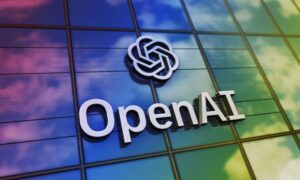Share
The government is set to deploy artificial intelligence (AI) in tax collection in a move aimed at widening the tax base and bringing more informal sector workers into the system.
Speaking during the annual NCBA Economic Forum, Presidential Council of Economic Advisors (CEA) chair Dr. David Ndii revealed that the algorithm will help identify and assess incomes of non-payroll individuals, particularly those in the informal economy.
“If you go to your SHA portal and you are not on payroll, it has to determine your premium, which has to be 2.75 percent of your income. So how are we determining your premiums for those non-formal people?” Ndii posed.
Also Read: Last Moments of Kenyan Politician Who Went Missing 5 Days Ago
Algorithm to Assess Informal Sector Incomes
Dr. Ndii explained that the system already has the capacity to estimate income for people outside the formal sector using available data.
“If you go there and put your ID, it will give you an annual premium. How did it arrive at that annual premium? There has to be an income assessment. We have the capability to assess income of people in the informal sector already,” he said.
He further estimated that 2.5 million taxpayers earn the same as their formally employed counterparts.
“They are doctors in private practice, and if people are in the same labour market with the same capacity and education skills, it follows that those not on payroll are earning about the same. Proof: go and check where they live, they are your neighbours,” he added.
Economists Warn Against New Taxes
Despite the technological advancement, experts caution that introducing new taxes may trigger resistance from the public.
“Given the current socio-political context, any attempt to raise new taxes in the 2026/27 financial year is likely to face headwinds from the public,” warned John Gachora, Group Managing Director at NCBA Bank.
He urged policymakers to tread carefully, noting that tax fatigue among Kenyans remains high.
Also Read: Kenya, Germany MPs Meet to Strengthen Parliamentary Cooperation
NCBA Revises 2025 Outlook to 5 Percent
The remarks come as NCBA Bank revised its economic outlook for 2025 to 5 percent, citing challenges in fiscal policy and consumer spending.
The bank further warned that despite optimism in some sectors, any attempt to raise taxes in the coming fiscal year could face serious public pushback, even as the government moves to modernize its revenue collection systems.
Follow our WhatsApp Channel and WhatsApp Community for instant news updates

OpenAI Image. PHOTO/ Courtesy.
You Might also Like








